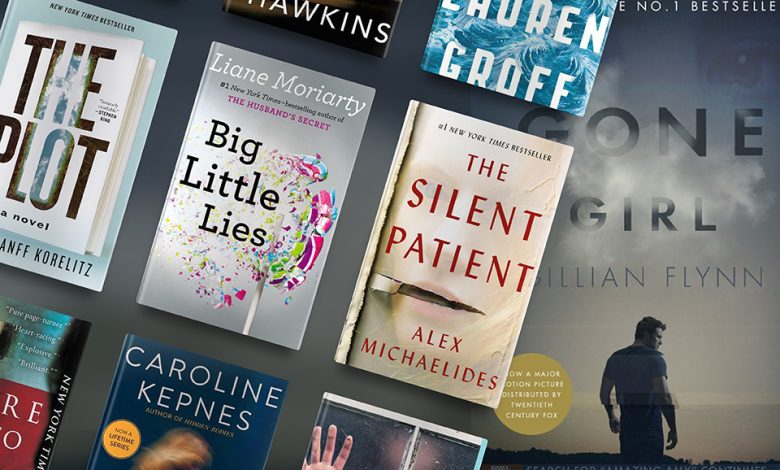Books Like Gone Girl

Unraveling Intricacies: Exploring the Literary Landscape of Psychological Thrillers through “Gone Girl” and Its Literary Kin
books like gone girl – In the vast realm of literature, certain books emerge as trailblazers, leaving an indelible mark on the minds of readers. Gillian Flynn’s “Gone Girl” is undeniably one such masterpiece that has redefined the psychological thriller genre. Its gripping narrative, unreliable narrators, and unexpected twists have set a benchmark for contemporary thrillers. As we delve into the world of books akin to “Gone Girl,” we embark on a journey through the intricacies of psychological thrillers, examining the common elements that make these novels so compelling.
The Evolution of Psychological Thrillers
Psychological thrillers, as a genre, have undergone a remarkable evolution over the years. Traditionally, these stories focused on external threats and physical danger. However, with the advent of psychological depth and nuanced characterizations, the genre has shifted towards exploring the complexities of the human mind. “Gone Girl,” published in 2012, stands as a testament to this evolution, introducing readers to a narrative that skillfully intertwines the psychological nuances of its characters with a riveting plot.
Themes in “Gone Girl”
At the heart of “Gone Girl” lies the theme of deception. Flynn crafts a narrative that challenges the reader’s perceptions, forcing them to question the reliability of the characters and the information presented. The exploration of marriage, identity, and societal expectations further adds layers to the story. As we explore books similar to “Gone Girl,” we find a common thread in the exploration of complex human relationships and the dark underbelly of seemingly ordinary lives.
Literary Kin: Books Sharing the DNA of “Gone Girl”:
- “The Girl on the Train” by Paula Hawkins:
Paula Hawkins’ “The Girl on the Train” is a literary sibling to “Gone Girl” in its exploration of unreliable narrators and intricate psychological landscapes. The story follows Rachel, an alcoholic woman who becomes entangled in a missing person’s investigation. As with “Gone Girl,” Hawkins weaves a tale where perceptions shift, secrets are revealed, and the line between truth and illusion blurs.
- “Sharp Objects” by Gillian Flynn:
Staying within the realm of Gillian Flynn’s works, “Sharp Objects” is another psychological thriller that captivates readers with its dark and unsettling atmosphere. The novel introduces Camille Preaker, a journalist who returns to her hometown to cover a series of brutal murders. Flynn’s ability to delve into the psyche of her characters and unravel hidden traumas is a hallmark shared with “Gone Girl.”
- “Before I Go to Sleep” by S.J. Watson:
S.J. Watson’s debut novel, “Before I Go to Sleep,” explores the fragility of memory and the unreliability of one’s own recollections. The protagonist, Christine, wakes up every day with no memory of her past. As she unravels the truth behind her amnesia, the narrative unfolds with twists and turns reminiscent of the suspense found in “Gone Girl.”
- “In the Woods” by Tana French:
Tana French’s “In the Woods” blends psychological depth with a gripping mystery. Detective Rob Ryan is haunted by his own childhood trauma as he investigates a young girl’s murder in a small Irish town. The novel intricately weaves together the personal and professional, drawing readers into a web of secrets and lies.
Common Elements
What binds these novels together is the skillful use of unreliable narrators, intricate plotting, and a willingness to explore the darker facets of human nature. Each author masterfully crafts a narrative that keeps the reader guessing, challenging their assumptions and delivering unexpected revelations. The exploration of psychological trauma, complex relationships, and the consequences of deception creates a rich tapestry that echoes the thematic depth of “Gone Girl.”
Conclusion
In the world of psychological thrillers, “Gone Girl” serves as a touchstone for excellence, influencing a new wave of novels that push the boundaries of the genre. The books discussed here share a common DNA with Flynn’s masterpiece, offering readers a chance to immerse themselves in stories where nothing is as it seems, and the human psyche becomes the battleground for suspense and revelation. As we continue to explore the ever-expanding landscape of psychological thrillers, these novels stand as shining examples of the genre’s ability to captivate and challenge readers in equal measure.
Also Read: https://primenewsartical.com/



